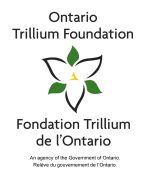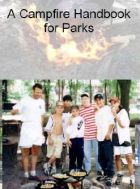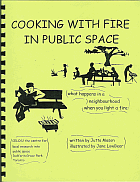

Pages in this Folder:

Related Folders:
See also Department Site Map
Support Provided by

Toronto Parks and Trees Foundation

This website has received support from celos.ca through the Trillium foundation.
Publications
Comments?
For the basics, see
- Website & Privacy Policies
- How To Get Involved
- The Role of the Park
Search options:
Department Site Map
Custodians:
< Chapter Six | Stories List | Chapter Eight >
The making and unmaking of Dufferin Grove Park.
A summer serial August 18, 2011 , Chapter Seven
Jutta Mason
Recap: Dufferin Grove Park is doing things all wrong, says the current management of Parks, Forestry and Recreation (PFR). The way it is run leaves the city “vulnerable and open to major risk factors.” So a new supervisor has been placed there, whose job it is to return the park to the core activities that the City has traditionally run. One of her tasks this summer has been to dissect out the traditional activities from the many “programs that represent anomalies for PFR.”
If the “anomalies” are going to be eliminated, sanitized, or commercialized, it’s time to write down the story of how they grew up in the first place. Memory is short. Maybe if there’s a record of how the trial-and-error approach shaped Dufferin Grove Park in its current form, then – as these “anomalies” fade away – future park users will have a reference. Down the road, some readers may want to use this story to pick up the thread and continue, if a time comes when a new wind blows from neighbourhoods into City Hall.
At the end of Chapter Six of this “Summer Story” I wrote that a new vocabulary has grown up to accompany the “functional model” used to restructure Parks, Forestry and Recreation (PFR). I said I’d make a list of all the important words for Chapter Seven. But it was a tougher than I expected. There are new ways of using common words like “action,” there are words which have one meaning in the community letters to Councillor Bailao but a very different meaning when used by PFR management, like “food,” and there are other words, like “compliance” and “authorization” which are almost never used in ordinary talk. But they can act as sticks to whack people with. So as I compiled my list, I was only able to get to the letter “F” in this chapter, when I had hoped to get through the whole alphabet. And it’s going to be a bit of hard work for the reader as it was for me, looking at these words so closely, to consider how they’re really used within PFR.
There may not be a short cut, though. Misunderstandings are so easy. For example: The many letters park users have been writing prompted Ward 18 Councillor Ana Bailao to set up a quick meeting last Thursday. She asked Recreation supervisor Wendy Jang and Recreation manager Kelvin Seow and me for coffee at the Courense Bakery on Bloor Street. The meeting was difficult, in large part because we often seemed not to be speaking the same language.
One of the consequences was that we formed quite different interpretations of what was decided. For example, I came away with the idea that Kelvin and Wendy had agreed to collaborate with CELOS on the changes they want to make to Dufferin Grove staffing, instead of just announcing them. But less than a week later, Wendy wrote that it’s “inappropriate to involve external parties” in describing the skills that city staff need to work at Dufferin Grove. She was referring to CELOS, and to long-time park users as well.
So that Thursday meeting did not establish the principle I thought it did. The differences in outlook are extensive, and the words used by city staff need to be probed for their meanings. So I’ll start with “A.”
Accountability: the meaning seems to be flexible. The recreation manager refers to an “accountability framework,” i.e. a set of hooks to hang policies and procedures on, in an open-ended way that is never complete, i.e. additional policies can be added at any time. The term can also be used to point to a lack: projects that don’t apply the city’s policies and procedures lack accountability. Alternative routes to accountability are not generally admitted.
Action plan: usually emanating from management meetings. Plans take the form of a detailed list, with uncertain consequences. The plan may not have a practical sequel, or it may cause radical, distressing changes, or it may stop some action.
Appearance: This is almost as important as reality, although on the face of it, it could be the opposite. The word is often used interchangeably with “perception.” For example, from the PFR Cash Handling Briefing Note prepared for Recreation Director Janie Romoff: “Procedures should be established to protect employees against potential risk of or perception of mismanagement or misappropriation of funds.” In the eyes of PFR management, the appearance of wrongdoing is the equivalent of actual wrongdoing.
Aquatics: a section of Parks, Forestry and Recreation that was separated out 3 years ago, with its own staff and supervisors and its own internal logic. The separation restructured all water-related activities, putting deep-water swimming pools (covered by provincial legislation) into the same silo as wading pools (not covered by legislation). Wading pool attendants are sometimes as young as 14. They have multiple training sessions, earn the minimum wage, and consequently tend to have a very narrow perception of their job. So for instance most wading pool attendants won’t pour water on nearby park trees in a drought, won’t take suggestions from park users, and rarely offer kids other playground fun (e.g. arts and crafts) even when the pool is nearly empty. The wading pool, their supervisors say, is their “sole task,” and the attendants usually give the appearance of being very bored. The cross-over between aquatics staff and the other Dufferin Grove program staff, with all staff expecting to share tasks, is regarded as an anomaly that goes against city policy.
Area activity coordinator: a step up (at a wage of $14 an hour) from “Community activity coordinator” at a wage of $10.25 an hour. These are the main two job categories available for Dufferin Grove Staff as of this summer, no matter what they do in the park or how long they’ve worked there.
Authorization: what all front-line PFR staff must get (from the next staffing level up) before doing anything not specifically described in their daily assignment. Usually linked with the word “prior.” Soldiers wait for their sergeant to give orders and then they obey them; they don’t make decisions themselves. The new requirement for “prior authorization” abolishes the more flexible, day-to-day collaboration with park users at Dufferin Grove.
Budget: this term is used by Dufferin Grove staff to refer to the finite amount of tax funds allocated to pay staff to run park programs, plus the amount donated by park users for food, skates, etc. to add extra programs. Until Dufferin Grove staff were prevented from monitoring park spending week by week (about a year ago) they tried to make sure that they didn’t go over this budget by year’s end. If the budget ceiling was getting too near, staff reduced their work time and slowed down programs and maintenance until they were back in the safe zone.
The term “budget” is used differently by PFR management. It refers to the yearly operating funds allocated by City Council, i.e. $360 million this year. Budget calculations don’t acknowledge the donations at Dufferin Grove unless the money is deposited into the city’s general funds. Here’s an example from the recreation supervisor, in a response to a park friend’s letter: “Starting in May 2011, some of the campfire rental donations have been deposited with the City, but otherwise, the Parks budget has not been a beneficiary of any funds raised at this site.”
When the PFR citywide budget is in danger of being overspent, management tries to slow their discretionary spending – i.e. recreation centres may be closed for a month or programs may not be offered to “Welcome Policy” users. Money is saved by cutting back the hours of part time staff. Full time staff wages and management salaries can’t be cut, so during slow times, they remain inside the closed centres.
Cash handling: when money is used as a medium of exchange to get good food, skate loans, swim diapers, etc. into parks, the City requires “city-approved standards and practices” to be used to deal with the cash. These particular standards are such a poor fit with Dufferin Grove programs that they will require expensive new equipment and many additional staff hours to do the required monitoring – making the programs not economically viable. In other words, in order to make sure that not one penny is missing from the food accounting, the programs will become so expensive they’ll have to be shut down. This will indeed produce the desired result of no penny unaccounted for.
There have been meetings with management about this cash handling dilemma since 2007. This winter, Wallace and Campbell food and skate lending operations will be taken over by the City as a “pilot” to apply the city policies.
Caution: a warning issued by someone in authority, about a rule about to be violated. For example, a recreation director cautioned a Dufferin Grove staff person about setting up a better skate lending program at Wallace Rink. If the program might lead to her getting additional work hours she would be “in a conflict of interest.” Another example: at the meeting last Thursday, the PFR manager cautioned City Councillor Bailao about her questions regarding the job descriptions of recreation staff: “the collective agreement is a matter between city management and CUPE.”
Census: can be an indicator of how well a recreation centre, a drop-in program, or a park are used by the neighbourhood around them. There are many census estimates, some of them probably unrealistic – for example, PFR staff reports have sometimes claimed that the number of park users significantly exceeds the city’s population. Despite the problems with census estimates, a careful count of park use over a sample time (an hour, a day) can be illuminating – although still only an approximation, since park users don’t stand still. On a recent summer Saturday when many people would normally be out of town, a census of Dufferin Grove from 11 a.m. to 10 p.m. recorded more than 2000 people in the park, without any special event, just a day in the park.
Impressive park census counts like this one seem to be of limited interest for PFR management. Low use of certain parks (and park facilities like the outdoor rinks) likewise seem to make little difference in how staff are allocated or promoted. A high number of drop-in park users does not necessarily correspond to high permit or registration revenue, which seems to be more of a focus for PFR.
Clarity: a term much used by all parties. For example, CELOS asked the city to “clearly define the legal and policy impediments to continuing to do what Dufferin, Wallace and Campbell do so successfully. Knowing the actual problems - what they are, for whom they are a problem, and the actual extent of the problem - will give us the information we need to work together....”
Clarity is of equal interest to PFR management, which says that “all partnership agreements [are required to] have clear terms conditions, defined roles and responsibilities” and then gives a long list of “issues arising from lack of clarity.” It appears that all parties long for clarity, but the goal is elusive. The lack of clarity can be compounded when there is difficulty in getting information – for example, when CELOS had to apply through Freedom of Information to read the Briefing Note addressing CELOS cash handling.
Collaboration: Insofar as collaboration suggests equal standing among the people working together, it’s not common between non-staff and City staff. Many PFR policies define collaboration as an internal staff activity. The term is sometimes used by PRF management as a defense against the “silos” accusation, e.g. from the general manager in response to criticism about the outdoor rinks:
“staff members from all branches are collaborating well in regard to the outdoor rink operation, and I am pleased with their cooperative approach to addressing any glitches and unforeseen issues.”
Collective agreement: An agreement negotiated periodically between the Canadian Union of Public Employees (CUPE) and City management, with or without a strike. In between these negotiating periods, management often invokes the collective agreement to explain the impossibility of change. “We would like to be more flexible,” they say, “but we’re held to the terms of the collective agreement.” The terms of the agreement as they are interpreted by management are often a puzzle, and I’ll be writing at least one chapter on role of the union at the Ward 18 parks. A union official says: “if management doesn’t like the collective agreement, why did they agree to it?” That’s a good question to explore. The other question is: where is the missing third element – the citizens who use the parks and other public spaces – in these discussions? Public space is not a factory shop floor: when do the park users get their say?
Community consultations: used interchangeably with community input. Often collected by a consulting company and then – in the view of some observers – used to justify staff objectives.
Community Recreation Programmer (CRP) – the new title of the old “recreationists.” Twenty years ago, recreationists ran recreation programs with kids or grownups, and earned about $46,000 a year. Under their new title they attend to revenue generation and compliance enforcement. Now they earn between $67,000 and $76,000 a year, but have far less scope than they formerly did. At Dufferin Grove, a CRP was added as an additional staffing layer three years ago, first duplicating some of the data-entry work of senior part-time staff and the taking it over – at more than twice the cost.
Compliance: following the rules to the letter, with monitoring and penalties for “non-compliance.”
Conflict of interest: defined as a serious error by PFR staff who forget that their interest must be solely in following management direction. Example: if Campbell Park neighbours enjoyed their first community dinner in the park, and they need 10 hours of help from a park staff worker to have another dinner, then a staff person is in conflict of interest if he says it’s a good idea. It’s assumed he is backing the idea just to get more work hours as a part-time staff.
Continuous improvement: a term for what PFR management feel they are engaged in. From the former PFR general manager (now promoted to deputy city manager): “We are constantly reviewing and revising our protocols and procedures to ensure the continuous improvement of operations and service to all residents.” From the Dufferin Grove recreation supervisor: “We continuously review and improve our operations to ensure they are well-managed and well-run.”
Customer: the term most commonly used by PFR to describe Torontonians who use parks and community centres. The preference for this word over, for example, “resident,” “citizen,” or “taxpayer,” stems from the need for “revenue generation” to offset the considerable PFR budget increases since amalgamation. In 2011, about $100 million revenue will be needed to fill the gap between PFR operating costs (mainly staff wages and salaries) and the available budget funds from municipal taxes and other levels government. The extra revenue is supposed to be earned through the sale of recreation programs and rentals of sports field or recreation centre rooms to “customers” who want those commodities.
Donation: a term used by park friends and CELOS to describe the money or work that neighbours give to the park. In the case of money, CELOS uses the approach of many art galleries and museums worldwide: “pay what you can” (with a suggested donation) for any programs that need extra staff to function, e.g. the food programs, skate lending, campfires, swim diaper supply, bake oven programs, etc. . This means that everyone is welcome and can participate even if they have no money to give. However, PFR management calls these donations “discretionary pricing” and wants to them to be changed into set fees. From the recreation manager: “The City has an obligation to provide services in a fair and equitable manner. Discretionary pricing does not meet with this duty. City Fees are submitted in the annual budget submission for Council approval. City Fees must be transparent and equitable (non-discretionary).”
External parties: CELOS, park users, anyone not employed by the city, as in this explanation from the recreation supervisor: “When it comes to staffing matters, it is inappropriate to involve external parties.”
Food: the common definition is what people (and other creatures) eat. At Dufferin Grove and other Ward 18 parks, used as a way of enlivening parks and supporting families. Groceries are bought at various neighbourhood grocery stores and the farmers’ market; usually cooked or baked at the park, using the rink kitchens and the two outdoor bake ovens. Food programs are supported by donations (pay what you can); food is often given without exchange of money (coffee or a cookie to offer a welcome, bread as a trade with farmers for produce, mini-pizzas to reward odd jobs done by kids and students, full meals to homeless park friends or people who are ill). Until now, the program staff’s approach at Dufferin Grove has been “no food scarcity.” Brilliant.
The recreation manager refers to food as “inventory” or “products.” The eaters are called patrons, who will require extra “Risk and Liability coverage for products provided.” PFR wants this inventory to be kept locked up. There want to develop protocols to investigate “inventory shortages.” These suggestions may come from the city’s “internal auditor,” whose toolkit is designed to hunt for fraud and conflict of interest. That’s the focus of the story of Dufferin Grove Park for some of the staff at City Hall.
(to be continued)
Post script: the money story
Many of the words in this “vocabulary” chapter of the Summer Story have some money implication. Here’s an example showing different uses of the word “budget” to refer to money for park programs:
Budget: On August 9, Park friend Kendra Hawke wrote to City Councillor Giorgio Mammoliti, the head of the Community Development and Recreation Committee of City Council. She asked, in reference to Dufferin Grove, “why fix it if it isn’t broken?” and gave this example: “The park’s community activities raise about $190,000 a year that is put towards the park budget.”
Dufferin Grove recreation supervisor Wendy Jang wrote back on behalf of PFR: “The monies collected at Dufferin Grove for snack bar and food cart products, Friday Night Suppers, pizza days and campfire rentals are collected by CELOS, a local community organization, and deposited into the CELOS private banking accounts. Starting in May 2011, some of the campfire rental donations have been deposited with the City, but otherwise, the Parks budget has not been a beneficiary of any funds raised at this site.”
This seemed to need a response from CELOS.
Clarification, to Wendy Jang: “CELOS (The Centre for Local Research into Public Space) is a registered charity and therefore subject to quite a bit of oversight. The idea that the funds raised through food, skate lending and other programs are ‘deposited into the CELOS private banking accounts’ makes us sound a little sticky, don't you think? You might want to have a look at our public web posts about where the funds go.... I think you'll see that at Dufferin Grove Park, funds that are raised are used as a medium of exchange to support the wonderful diversity of community gifts that make the park so lively. As for the Parks budget not being ‘a beneficiary of any funds raised at this site’ -- it's good to clarify that you're referring to the PFR $360 million operating budget that comes mainly from our taxes, citywide. If you look from a more local point of view of what funds were made directly available for Dufferin Grove, then the funds that CELOS has helped to raise (through our long-term cooperative relations with city staff) are indeed part of the budget. This particular way of increasing the funds available for an economically mixed neighbourhood like ours, without using up more taxes, is kind of interesting in the present context, don't you think?”
Councillor Ana Bailao says she wants to hear your opinion about the current Dufferin Grove changes. E-mail her at councillor_bailao@toronto.ca or call her office at 416 392-7012.
Summer Story (2011) is published by the Centre for Local Research into Public Space (CELOS), celos.ca.
< Chapter Six | Stories List | Chapter Eight >






 Printer friendly version
Printer friendly version